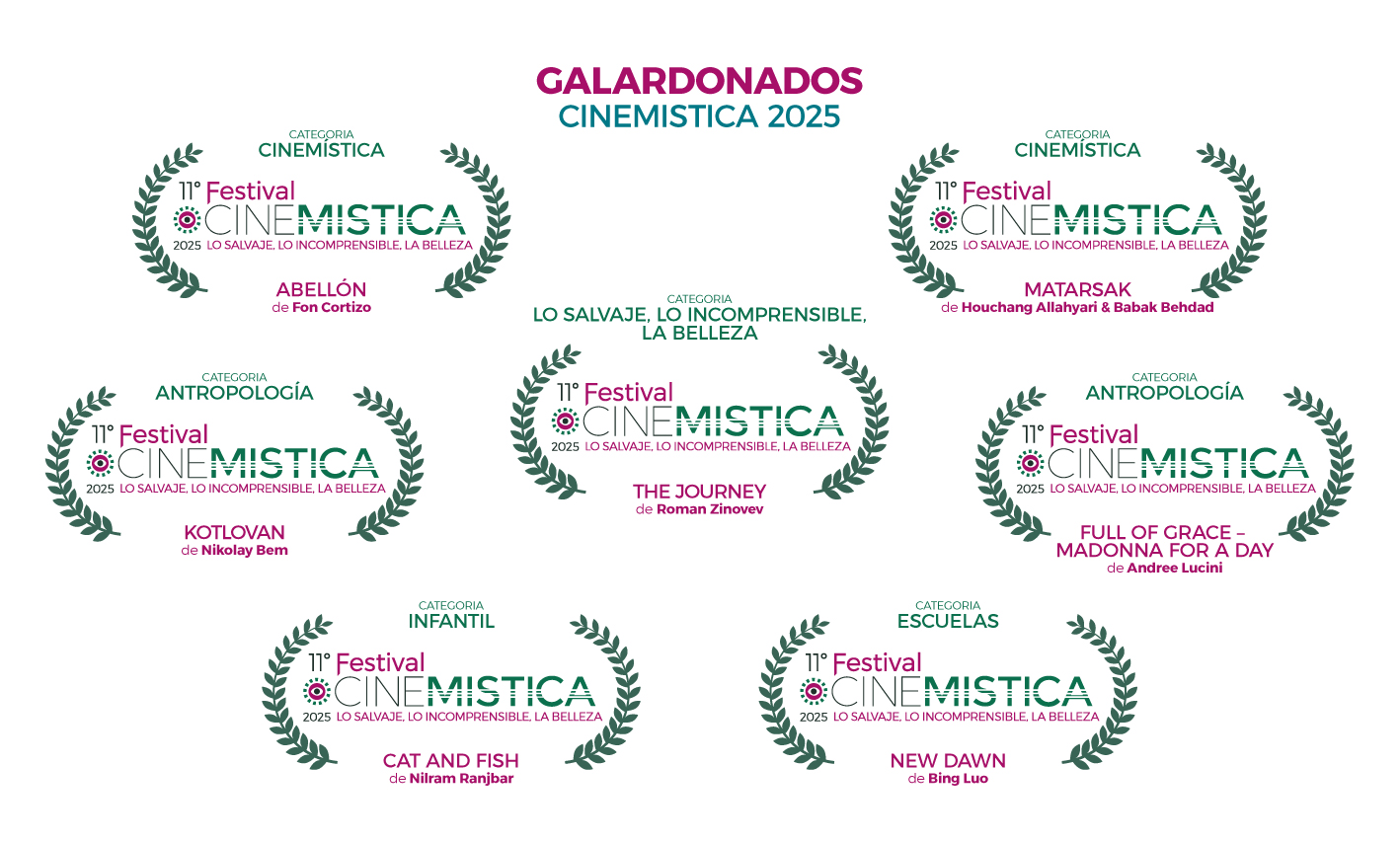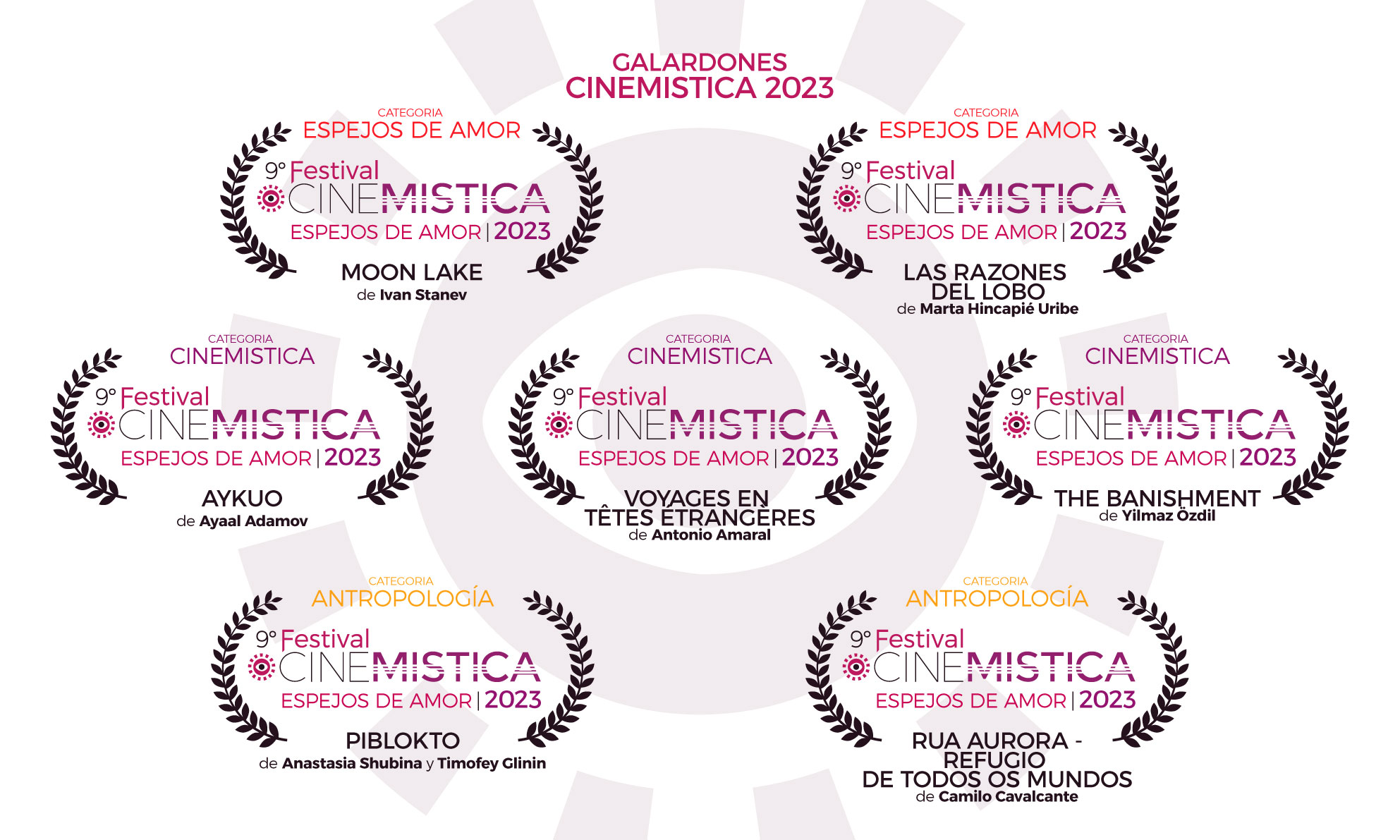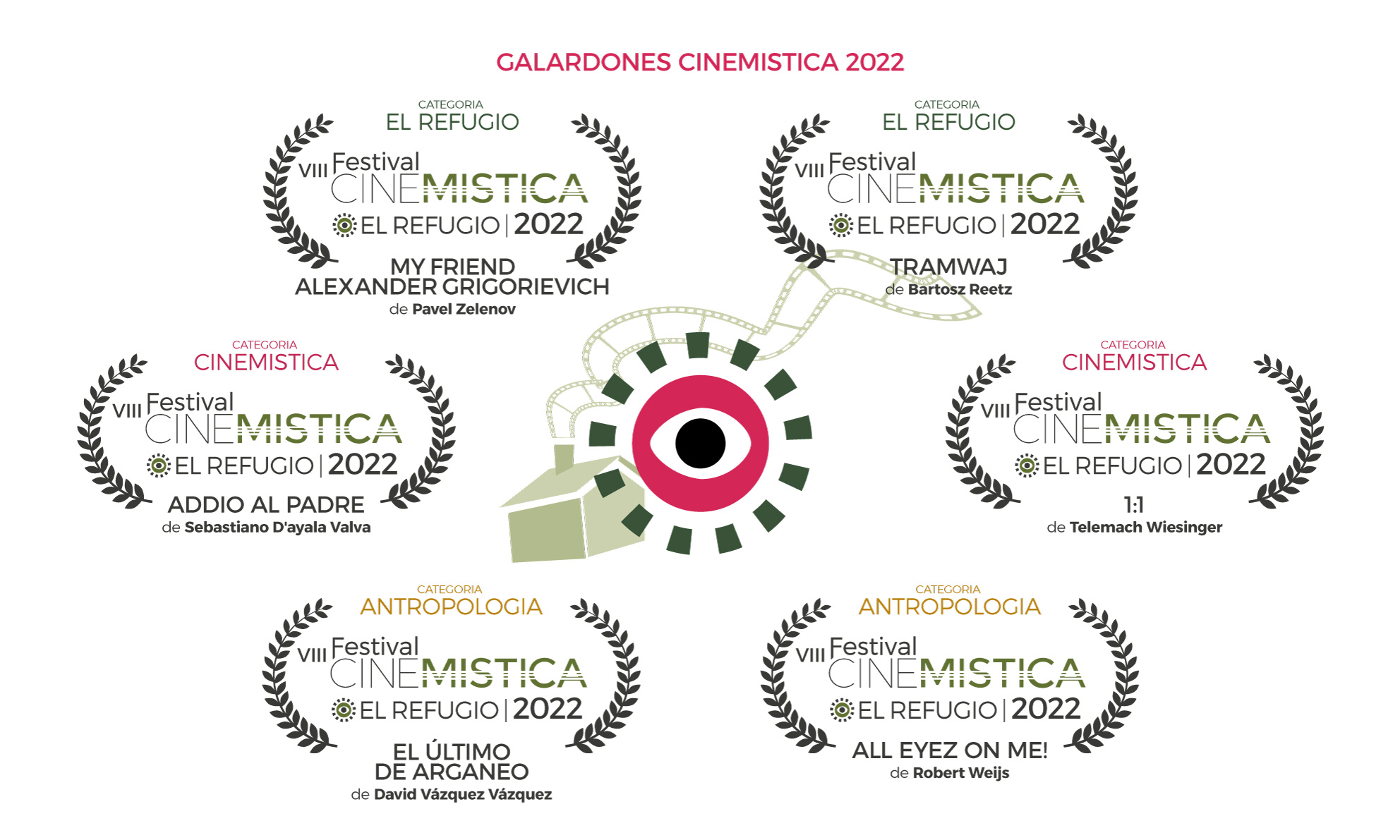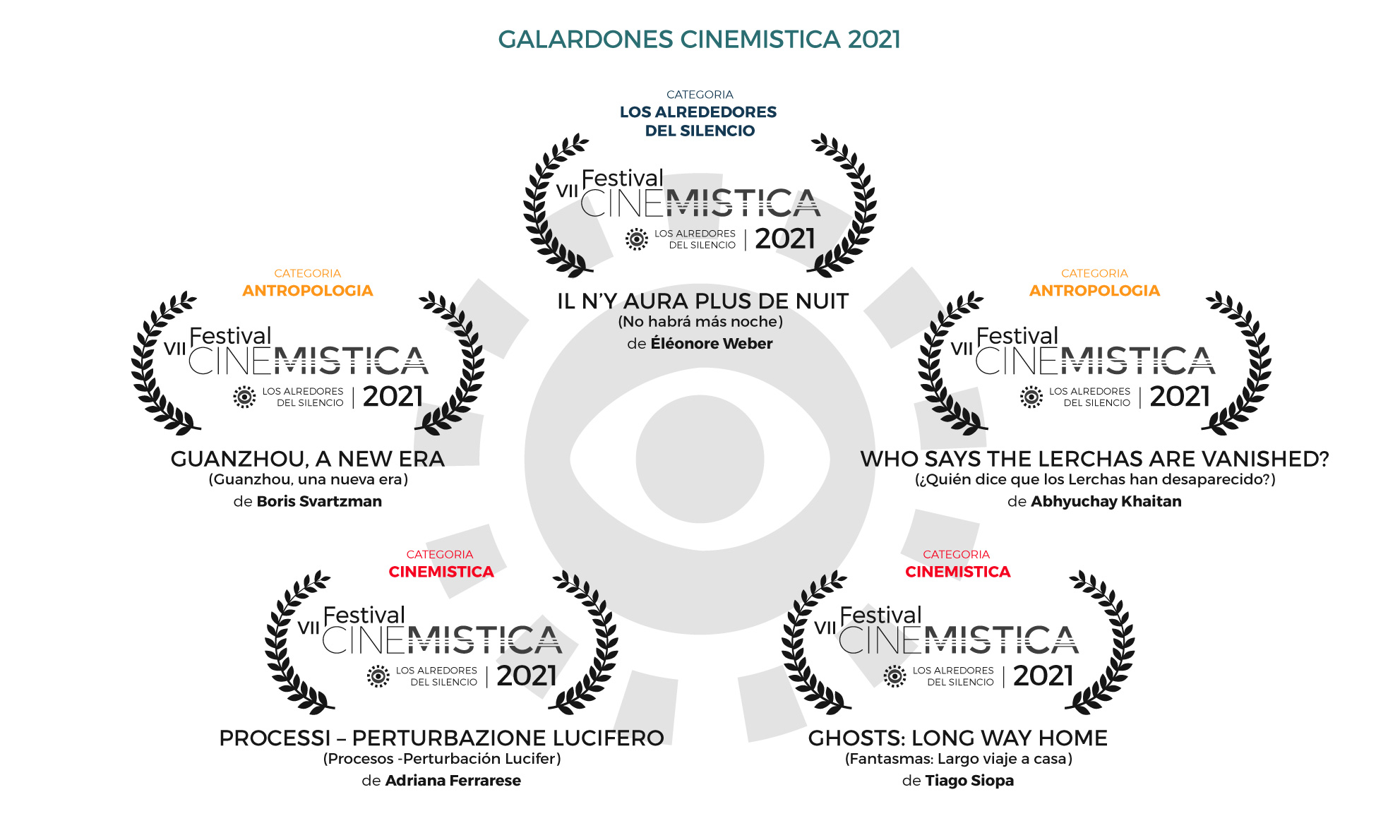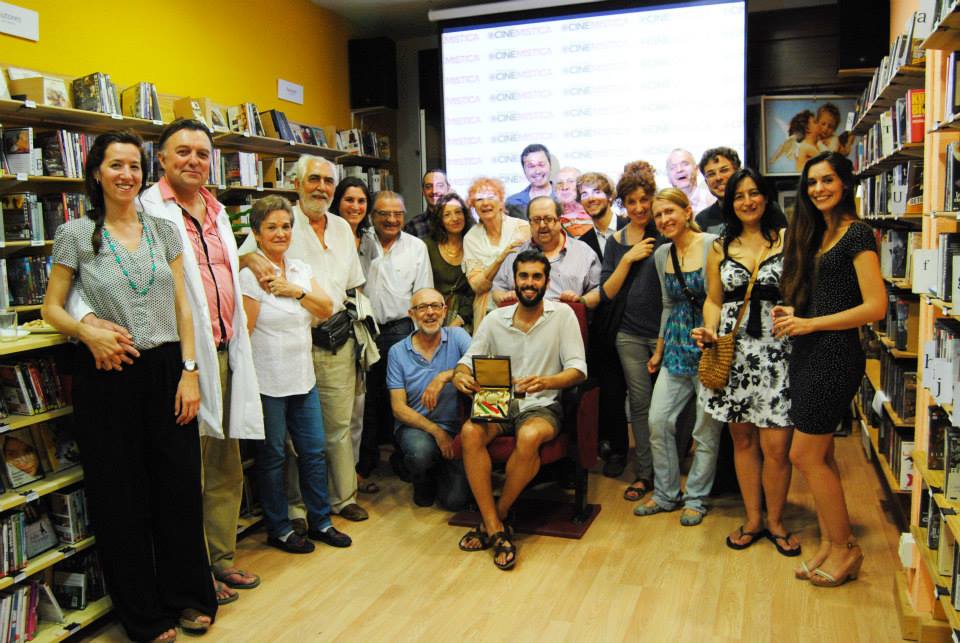1. Participation
Participation is open to all film producers and directors of any nationality or origin. Each author can present the number of films that they want, except for films which have previously been submitted to this contest.
What drive us
A contest dedicated to transcendental cinema, at its several meanings, including philosophic, psychological, scientific, anthropological, spiritual and poetic cinema.
Because transcendence in the man and the world, might be eventually ineffable and, on this, cinematographic art has certain advantages, and a huge responsibility.
Cinemística as an open space-time, with non restrictive features, enabling the authors to develop their own language: all formats, duration, nationality, year of production, etc. are accepted.
An international refuge for films that intend, technically or with the plot, an approaching to the big mystery of world representation, in the art and in the man. Without dogmas, under any individual or collective perspective, from faith, but also from agnosticism, spiritual atheism and scientific thought.
Filmmakers' looks, in all their socio-cultural diversity, interested in any film as a result of personal discovering, researching or experimentation, inspiration and work, from revelation or introspection of the authors. Quotidian, ecstasy and disparity as structures to create depth on the film treatment.
Mysticism and asceticism in film production represent, probably, a more absolute estate compare to others, because a cinema with huge budget and more technical complexity could be done, but sometimes the most humble and simple film is, however, universal.
Impermanent cinematographies, from the still, from 'amateur' cinema (from French verb aimer), define directors not only by what they show and how they do it on screen, but by what they decide not to show.
What appears and disappears, topologies emergence, materials or conscious, and their invisibility or subsequent expiration. The sequential surroundings of emptiness, of matters and time. Shafts at the discourse, eloquent, everyone can understand it by himself. Absence and miracle: Mystic as a possible cohabit together.
From 2014 the headquarter of Cinemistica Film Festival is the historical building of La Corrala de Santiago of the University of Granada, where take place most of the screenings and colloques of the festival.
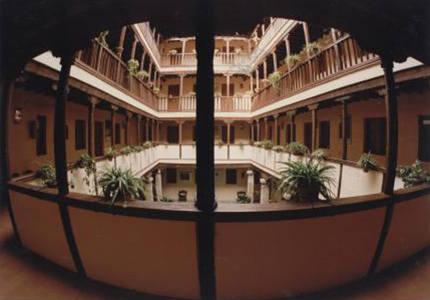
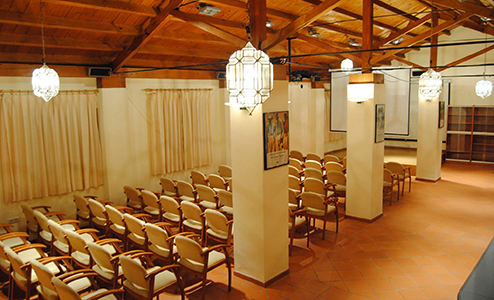
We are a small team, formed by Elena Gómez García (art historian), Eva Bellón (designer), Miguel Ángel Sáez (telecommunication engineer) and Manuel Polls Pelaz (Arte7Cinemateca manager).
Other members and friends from Guadalcine Association collaborate with communication and promotion.
![]()
Manuel Polls Pelaz, who called himself "cinehasta" (in the impermanence way: a cinema pilgrimage), owner of the film producer 2Angeles Films, is the responsible of the endow and management of the contest Cinemística. Manuel also endowed and directed in Barcelona (1993-1996) the contest L'Alternativa, and presided the Foundation La Jungla, which organize the European Cinema Market of Barcelona (1997-1999), and he also has directed al at the same time the contest NET (New European Talents), even the famous summer contest Grec in Barcelona.
Settled in Granada from 2002, he has been directing from then to now the Guadalcine Associated, and he also directs the touring cine-club "La Cueva del Ojo", which regularly programs cinema sessions in differents Faculties of the University of Granada, Cádiz, Seville, Córdoba and Malaga.
From 2013 summer, Manuel Polls also takes up the management of Arte7 Cinemateca from Granada, institution in charge of organizing the contest Cinemística.
Since 2017 he directs the Film Laboratory of the Technical School of Architecture of the University of Granada.
Cinemística was born in Granada, Spain, the border between east and west on the inside representation of the world, between the symbolism of the magnifier and the magnet. It is a gap in the space-time, and civilizations memories, between the magnifier and the magnet, timeless homeland for poets and alchemists from every art and belief.
You can find us at Arte7Cinemateca, Plaza Campo del Príncipe 1, bajo-izq., 18009 Granada (Spain).
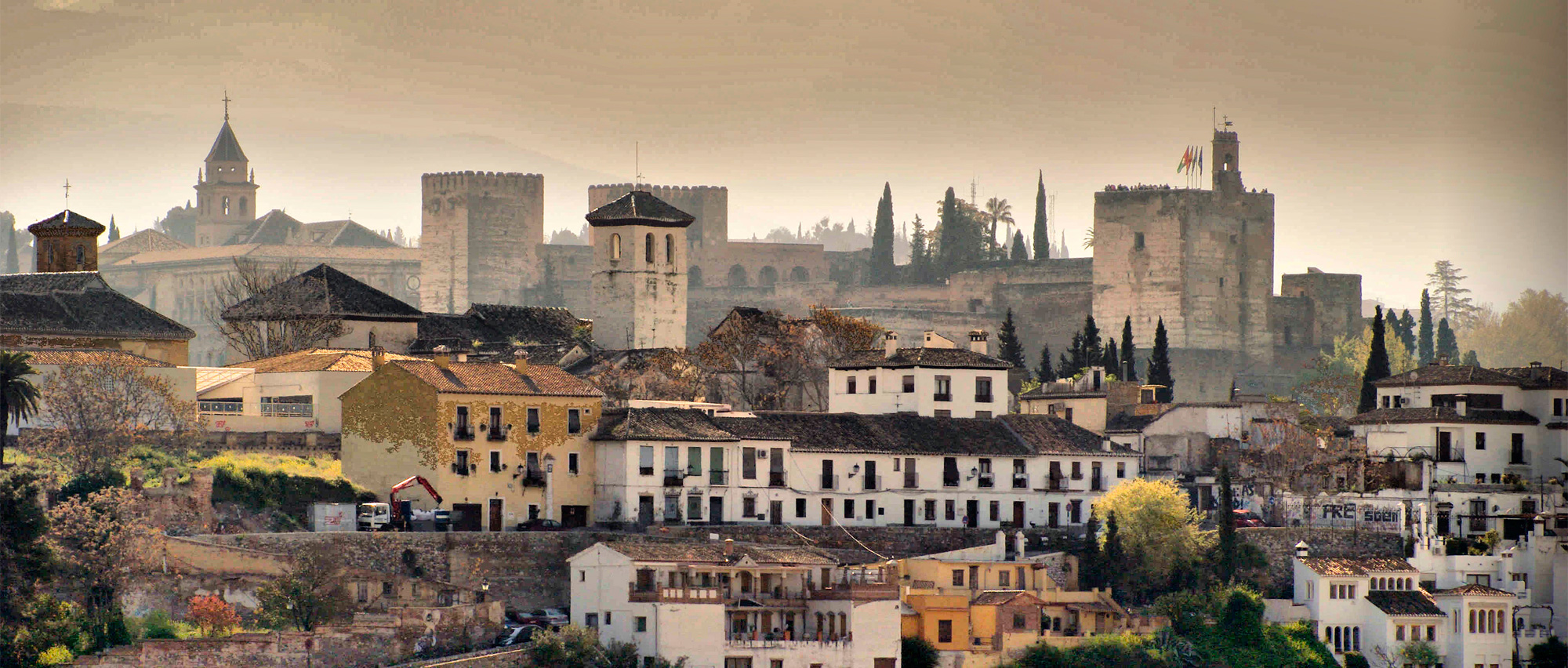

SUPPORTER

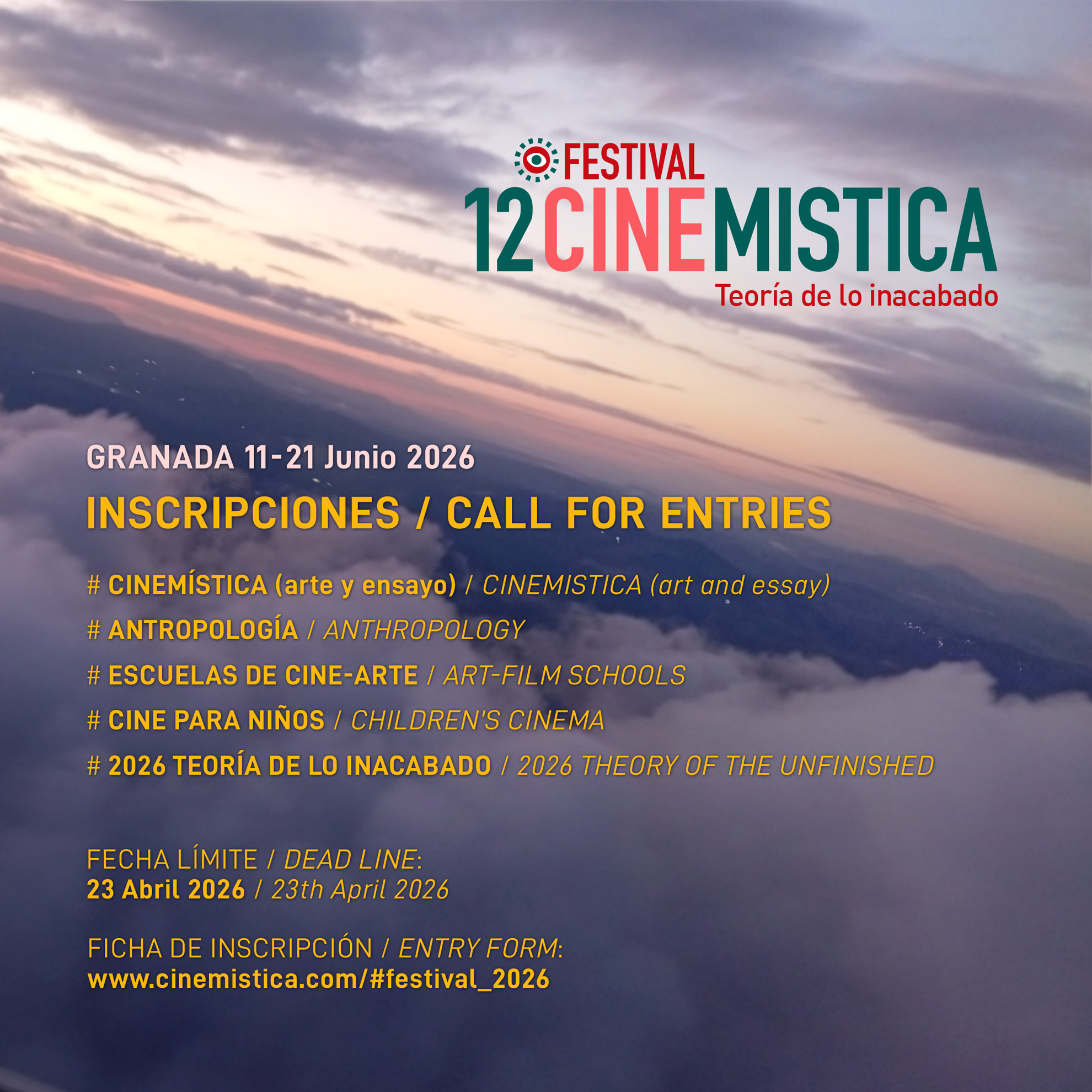
The 12th Cinemística Film Festival has changed its dates in search of a joyful renewal: June 11-21, coinciding with the summer solstice and taking advantage of the magical setting of open-air screenings at La Corrala de Santiago, the festival's main venue. An internationally established festival, based in Granada, it serves as a haven for alternative cinema, art cinema, the kind that doesn't conform to the audiovisual regulations of the establishment.
In addition to the usual four competitive sections, such as Cinemística (art house cinema), Anthropology (ethnographic films, visual anthropology), Film Schools (films from film studies graduation), and Children's Cinema, a fifth special annual section, 2026 Theory of the Unfinished, is added.
This last section seeks films about "what could not be," unfinished, infinite, abstract films, films without an ending or with uncertain endings, films that deal with unfinished stories, lives and events, epilogue films that begin at the end, anti-narrative, chimerical cinema, films "without rhyme or reason," cinema of the "not yet" with revolutionary, atypical, utopian films...
Other non-competitive, unprecedented, and highly interesting sessions and programs will also be added.
MICRO-SPONSORSHIP
As you know, Festival Cinemistica does not have subsidies, and is financed by small contributions from the sponsor and collaborating entities. If you wish, you can make your voluntary collaboration effective, making a deposit in the Guadalcine Association's bank account of the Caja de Arquitectos de Granada (after the San Agustín market), by any means you wish (transfer, hand deposit). Please always indicate your name and surname, which will be published on the festival's website and blog.
IBAN code of the account: ES81 3183 1800 1510 0445 4524
Five categories of participation have been established:
Festival supporters: up to 25,- €
Friends of the Festival: 25,- €
Festival partners: 45,- €
Festival protectors: 95,- €
Benefactors of the festival: 190,- €
Patrons of the Festival: 290,- €
Sponsor of the festival: 580,- €

Participation is open to all film producers and directors of any nationality or origin. Each author can present the number of films that they want, except for films which have previously been submitted to this contest.
All genres (fiction, animation, documentary, experimental, unclassifiable), year of production, length (short and feature films) and format of production are admitted; viewing for pre-selection will be done through a link provided by the authors to a server or digital platform (Vimeo type link, etc.).
The formats of the works selected for screening must be digital formats such as .mp4, although exceptionally they may also be in physical format of S8mm, 16mm. celluloid or DVD.
DCP is not accepted.
Films subtitled in English or French are accepted in the selection process.
The works finally selected must be in their original version with subtitles in Spanish. For very exceptional and justified reasons, they may be accepted for screening with English or French subtitles, on condition that we are provided with an .srt file with English subtitles and an original version without subtitles.
Authors are responsible for paying the royalties generated by their works, the festival is exempt from any payment in this respect.
To participate in this contest, the following conditions must be respected, and the participants will behave in accordance with:
- Each participant must complete and send before the dead-line the registration questionnaire which will be found further on blog.cinemistica.com/cinemistica-registration/
The Festival will recognize the signer of the registration questionnaire as the only interlocutor to negotiate all the aspects related to the film and as the only responsible rather than other companies or people who have been involved on the film production.
- Audiovisual support for the pre-selection. Normally, the selection committee works with the digital links to view the films, as indicated by the authors in the entry form.
If the entry form does not include a link to view and download the film, a copy of the film, in DVD or BluRay format, will be sent by post or courier to the following address:
ARTE7 CINEMATECA
Plaza Campo del Príncipe 1, bajo-izq.
18009 Granada - Spain
Transport costs will be paid by the entity which register the film.
The registrations also can be done through clickforfestivals.com, movibeta.com, festhome.com and filmfreeway.com.
In case of being selected, the management will contact the author asking for the material necessary for the projection and promotion of the film.
Selected films will be exhibited at the time and places showed on the programme and on the official website www.cinemistica.com. The films received will be kept on Arte7Cinemateca catalogue and may be free used (without copyrights etc.) for their cultural activities as well as in screenings in the Asociación Guadalcine/Arte7 activities in universities, cinema clubs and cultural centers.
Participation implies the full acceptance of these rules.
Film with a duration of 30 minutes or lower: 7.-€
Film with a duration over 30 minutes: 15.-€
Payment method: Only by PayPal
When the payment is made (each film submitted should be paid independently), you will receive from Pay Pal an ID number of registration, which you have to introduce in the first field of the Registration Questionnaire.
23th APRIL 2026
THE ADMISSION DEADLINE FOR FILMS CM2026 IS 23th APRIL 2026
Contact information
For doubts or queries, please contact us in:
Arte7 Cinemateca de Granada
Plaza Campo del Príncipe 1, bajo-izq.
18009 Granada, Spain
Phone: (+34) 958 228 133
Mobile phone: (+34) 678 90 36 34
Email: info@cinemistica.com
The first and highest award of the contest has a strong symbology: “THE MAGNIFIER AND THE MAGNET”. It’s about two elements connected very close with the person of the famous granadian cinemist José Val del Omar (1904-1982), who thought about the magnifier as occidental culture symbol (the obvious, the rational) against the magnet, element of the oriental culture (the magnetism, the invisible). For Val del Omar, Granada will be the meeting point between East and West.


